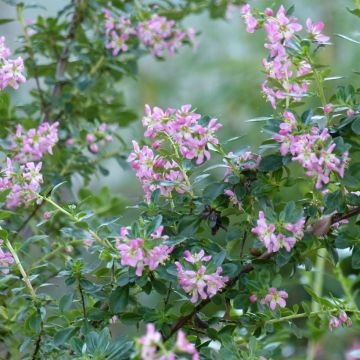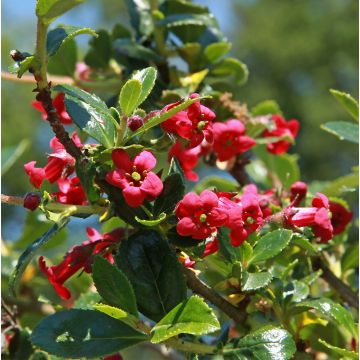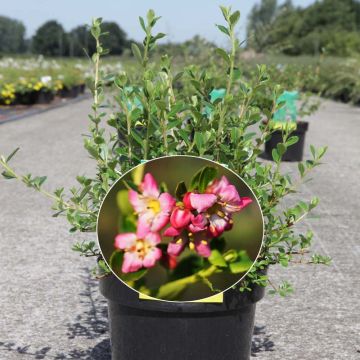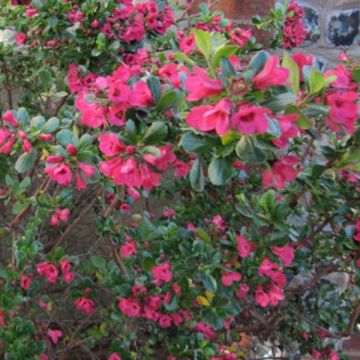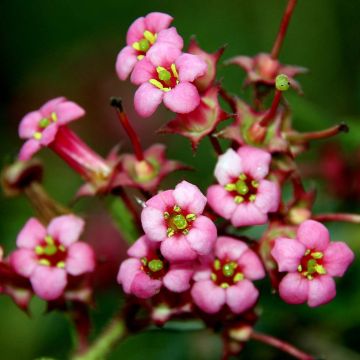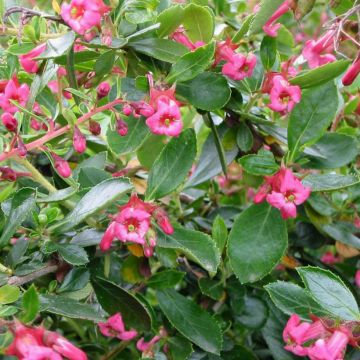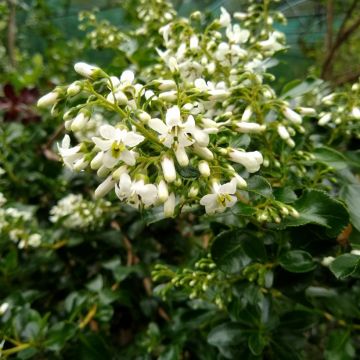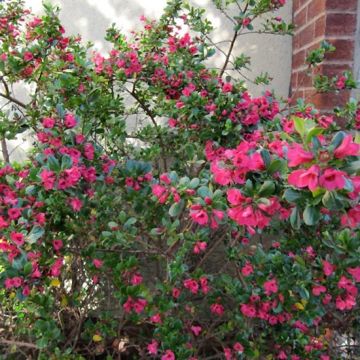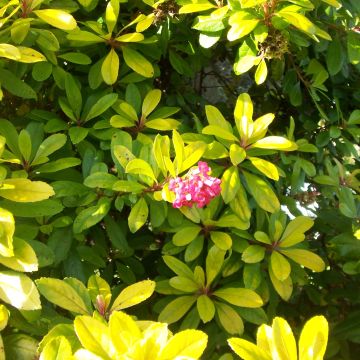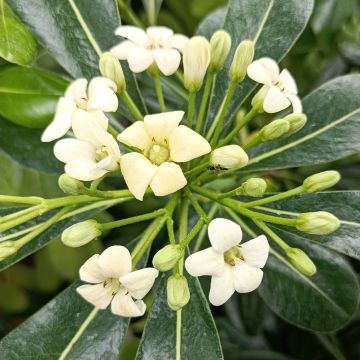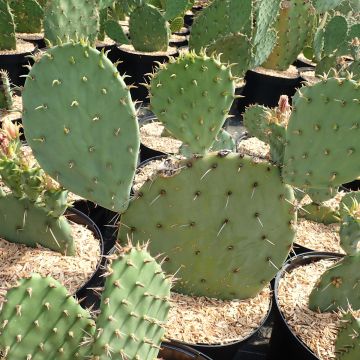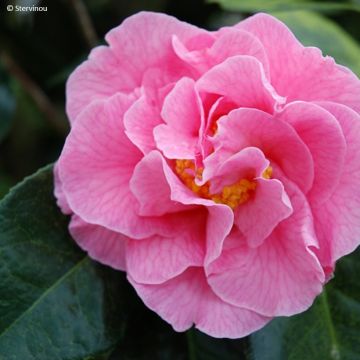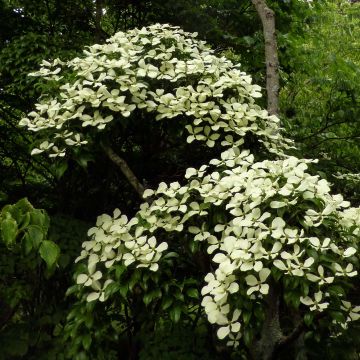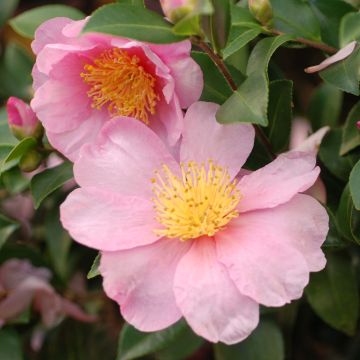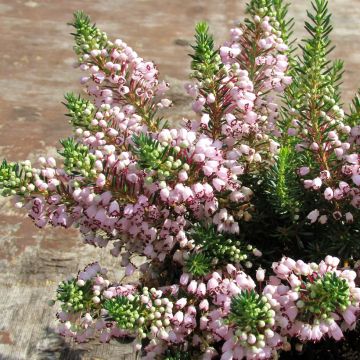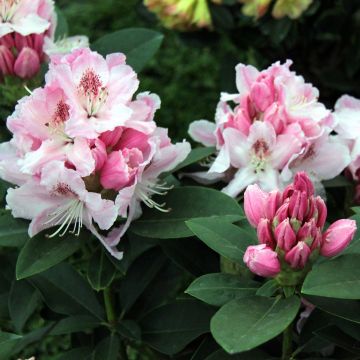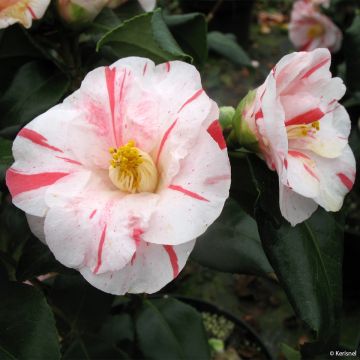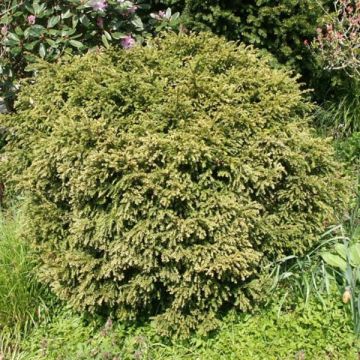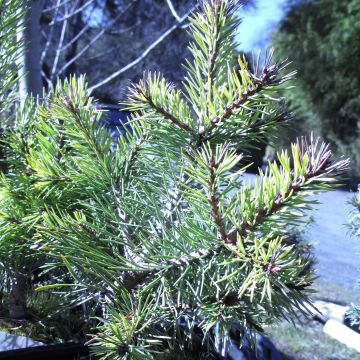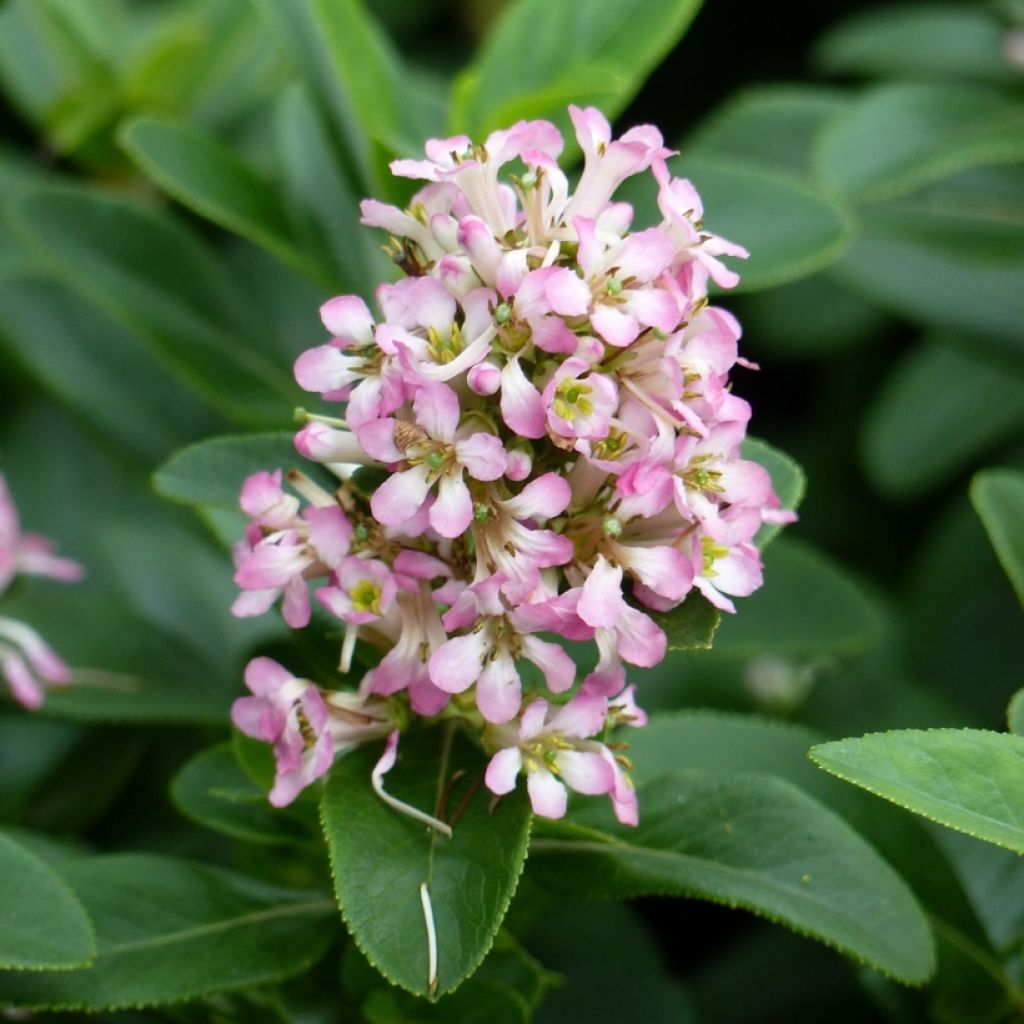

Escallonia laevis Pink Elle
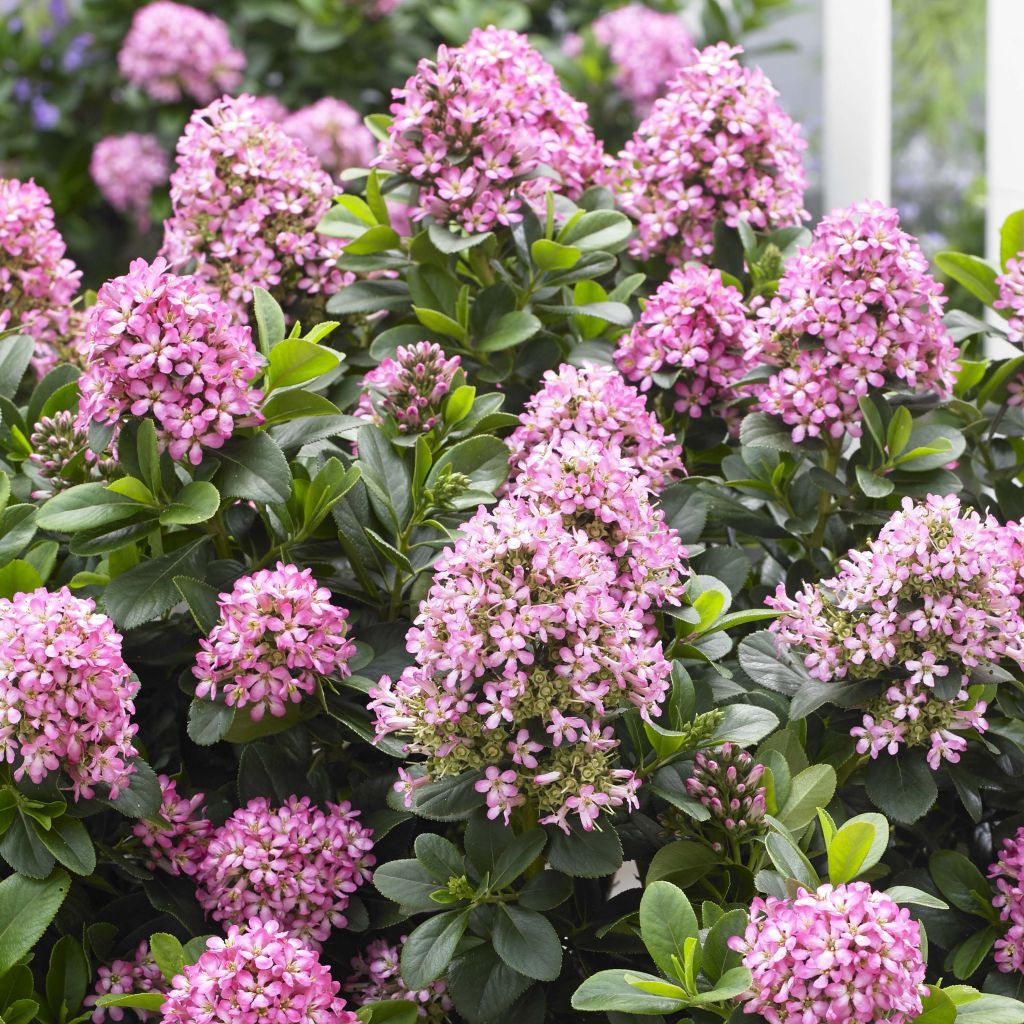

Escallonia laevis Pink Elle
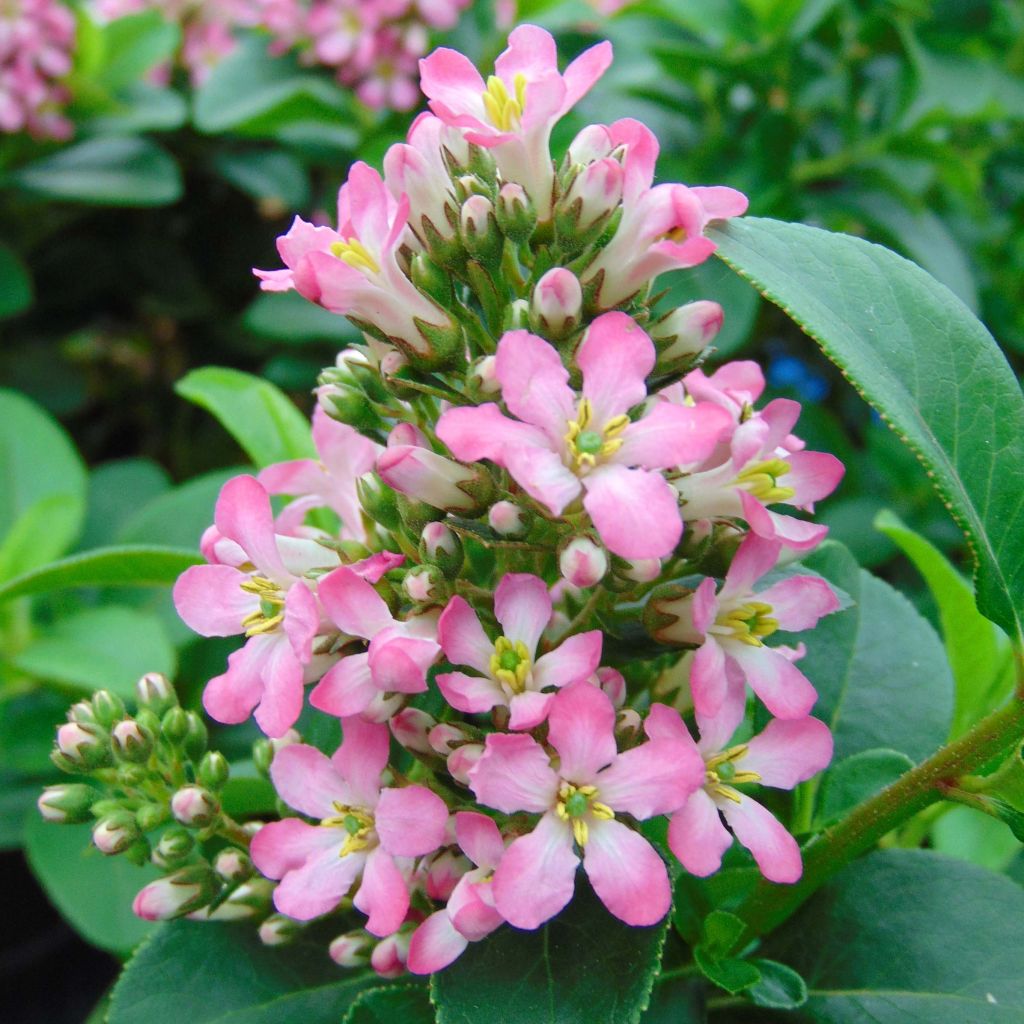

Escallonia laevis Pink Elle
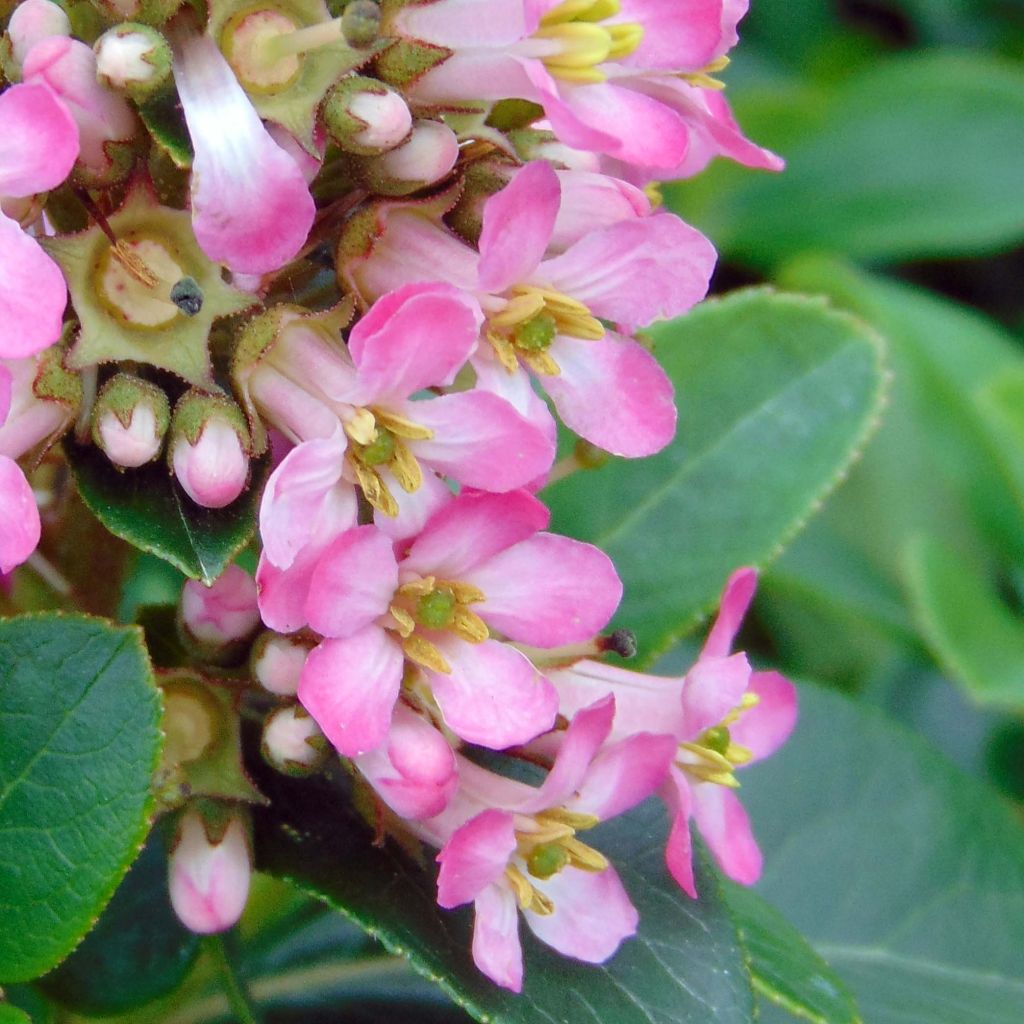

Escallonia laevis Pink Elle
Escallonia laevis Pink Elle
Escallonia laevis Pink Elle Lades
Redclaws
This item cannot be shipped to the selected country
Delivery charge from €5.90
Delivery charge from €5.90
More information
Schedule delivery date,
and select date in basket
This plant carries a 24 months recovery warranty
More information
We guarantee the quality of our plants for a full growing cycle, and will replace at our expense any plant that fails to recover under normal climatic and planting conditions.
From €5.90 for pickup delivery and €6.90 for home delivery
Express home delivery from €8.90.
From €5.90 for pickup delivery and €6.90 for home delivery
Express home delivery from €8.90.
Does this plant fit my garden?
Set up your Plantfit profile →
Description
The Escallonia 'Pink Elle' laevis is an adorable small evergreen bush, suitable for mild climates, very floriferous in summer. With its low and bushy habit, easy to shape through appropriate pruning in height or width, it is perfect for terrace decoration and easily fits into a small garden. Forming a beautiful mass of foliage with a vibrant, shiny, and aromatic green color when touched, it is adorned for a long period with panicles of pink flowers streaked with white. Generous, accommodating, and resistant to summer drought, it is hardy down to -12°C (10.4 °F), in well-drained soil, once established. The Escallonia laevis (also known as Escallonia organensis) belongs to the escalloniaceae family. It is a dense and low evergreen bush with an aromatic habit, native to Brazil, where it grows on rocky cliffs and ravines in the Serra dos Órgãos, not far from the sea. This species, discovered in 1841 by George Gardner, was brought to Europe by William Lobb in 1844. The Pink Elle cultivar is a French horticultural variety with reduced growth, resulting from a spontaneous sowing discovered by Ludovic Ladan in his nursery near Pointe du Raz, in Brittany. It is a bush that reaches 80cm (31.5 in) in all directions, with a nest-shaped habit, composed of thick, angular branches with resinous glands and adorned with persistent and rounded dark green leaves. Measuring 4 to 5cm (1.6 to 2 in) long, the leaves have dentate edges and emit an aromatic scent when touched. The flowering period, particularly long, occurs from June-July to September-October, depending on the climate. The intense pink flowers streaked with white are semi-open tube-shaped and clustered in dense panicles at the ends of the branches. This variety seems to be more resistant to cryptogamic diseases that affect regions with cold and humid winters. Escallonia 'Pink Elle' is a decorative plant, easy to shape, perfect in a nice pot on the terrace, but also in a dry garden, in a low bush massif. It only fears wet soils and icy winds; it is the most cold-resistant variety. It is not afraid of heat, dry summers once established, or calcareous soils, and manages to flower even in scorching or shaded situations. It is useful in coastal gardens because its pink flowers, like those of Olearias, brighten up the gray foliage of Atriplex, Bupleurum fruticosum, or Correa alba rosea, for example. It is a good companion for cistus, lavender, and rosemary, or deciduous azaleas and rhododendrons. Widely used as a coastal hedge in English gardens, Escallonia is also a boon for dry gardens, which often lack flowers in summer. It requires very little maintenance: a simple pruning with shears just after flowering is necessary to maintain its compact habit, and older specimens can be pruned more heavily at the end of winter when frost is no longer a concern.
Report an error about the product description
Escallonia laevis Pink Elle in pictures
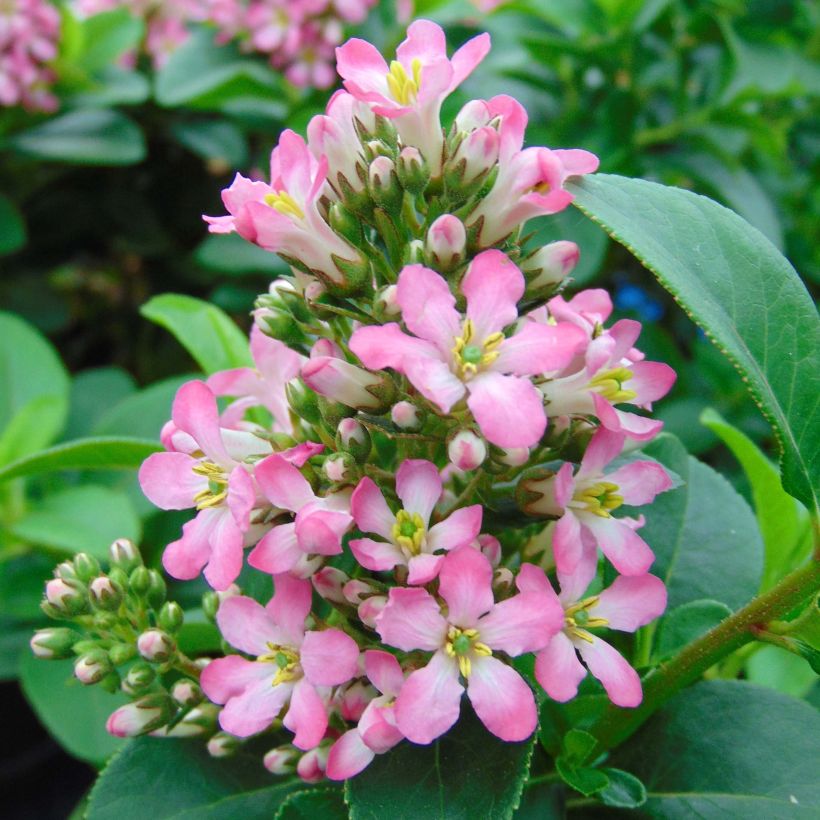

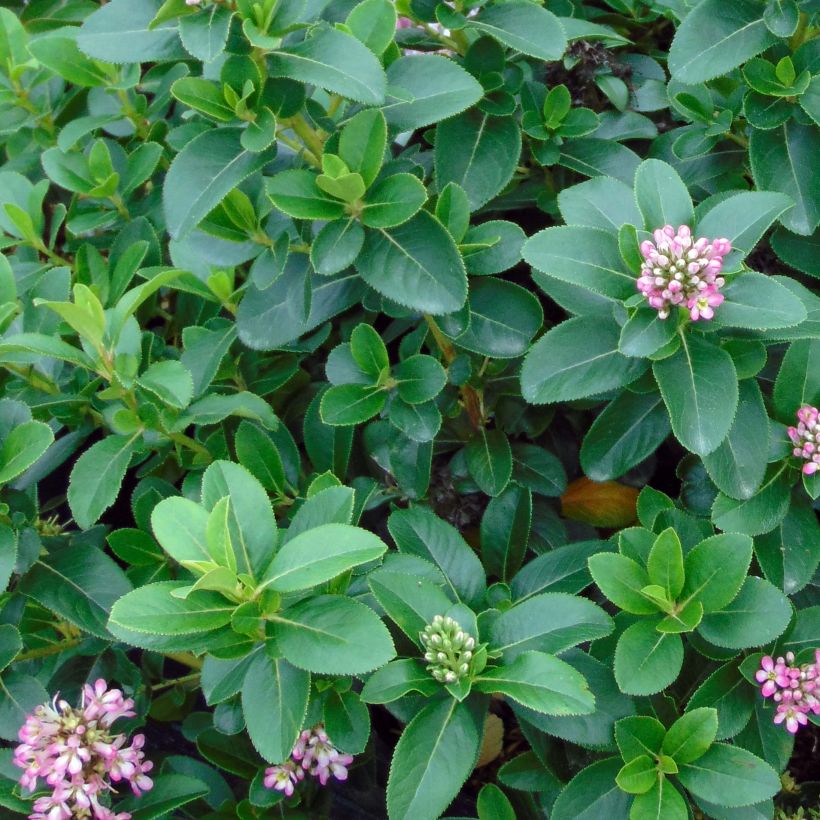

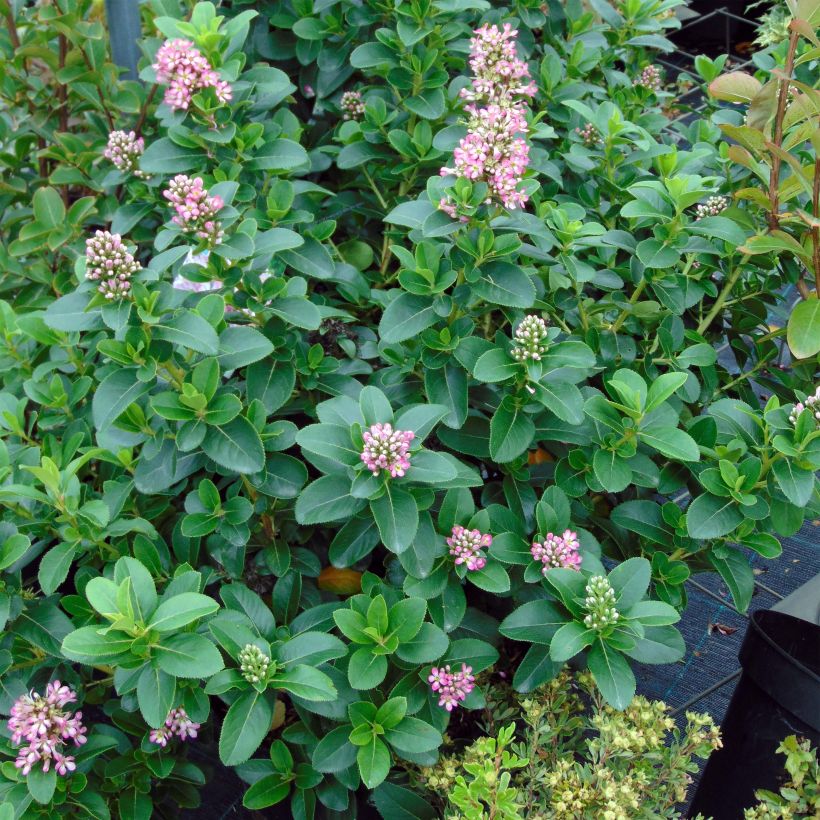

Plant habit
Flowering
Foliage
Botanical data
Escallonia
laevis
Pink Elle Lades
Escalloniaceae
Redclaws
Cultivar or hybrid
Other Escallonias
Planting and care
The Escallonia 'Pink Elle' prefers to be planted in spring or autumn in very mild climates. It requires well-drained soil, slightly acidic, neutral, or even limestone, in a sheltered and warm location. It blooms more abundantly in the sun but tolerates shaded exposures. Once well established, it does not require any watering in summer, even in dry climates. It can withstand sea spray but not cold winter winds. Optionally, apply rose fertilizer in spring if your soil is very poor. Prune to balance the shape in February and September. It dislikes heavy soils and stagnant moisture, especially in winter. If the soil is too heavy and limestone, it may suffer from chlorosis; if this is the case, apply a dose of sequestrant every year in spring. Practice a one-third height pruning in the first years during installation so that the bush acquires a dense and compact habit. You can also prune it into a ball shape. In cold regions, plant it in a protected location from prevailing winds, south-facing against a wall or west-facing in the back of a bed or hedge, and mulch the base in winter. If your Escallonia freezes in winter, it is likely to regrow from the base in spring.
Escallonias are often affected by fungal diseases in cool and humid climates.
Planting period
Intended location
Care
-
, onOrder confirmed
Reply from on Promesse de fleurs
Evergreen shrubs
Haven't found what you were looking for?
Hardiness is the lowest winter temperature a plant can endure without suffering serious damage or even dying. However, hardiness is affected by location (a sheltered area, such as a patio), protection (winter cover) and soil type (hardiness is improved by well-drained soil).

Photo Sharing Terms & Conditions
In order to encourage gardeners to interact and share their experiences, Promesse de fleurs offers various media enabling content to be uploaded onto its Site - in particular via the ‘Photo sharing’ module.
The User agrees to refrain from:
- Posting any content that is illegal, prejudicial, insulting, racist, inciteful to hatred, revisionist, contrary to public decency, that infringes on privacy or on the privacy rights of third parties, in particular the publicity rights of persons and goods, intellectual property rights, or the right to privacy.
- Submitting content on behalf of a third party;
- Impersonate the identity of a third party and/or publish any personal information about a third party;
In general, the User undertakes to refrain from any unethical behaviour.
All Content (in particular text, comments, files, images, photos, videos, creative works, etc.), which may be subject to property or intellectual property rights, image or other private rights, shall remain the property of the User, subject to the limited rights granted by the terms of the licence granted by Promesse de fleurs as stated below. Users are at liberty to publish or not to publish such Content on the Site, notably via the ‘Photo Sharing’ facility, and accept that this Content shall be made public and freely accessible, notably on the Internet.
Users further acknowledge, undertake to have ,and guarantee that they hold all necessary rights and permissions to publish such material on the Site, in particular with regard to the legislation in force pertaining to any privacy, property, intellectual property, image, or contractual rights, or rights of any other nature. By publishing such Content on the Site, Users acknowledge accepting full liability as publishers of the Content within the meaning of the law, and grant Promesse de fleurs, free of charge, an inclusive, worldwide licence for the said Content for the entire duration of its publication, including all reproduction, representation, up/downloading, displaying, performing, transmission, and storage rights.
Users also grant permission for their name to be linked to the Content and accept that this link may not always be made available.
By engaging in posting material, Users consent to their Content becoming automatically accessible on the Internet, in particular on other sites and/or blogs and/or web pages of the Promesse de fleurs site, including in particular social pages and the Promesse de fleurs catalogue.
Users may secure the removal of entrusted content free of charge by issuing a simple request via our contact form.
The flowering period indicated on our website applies to countries and regions located in USDA zone 8 (France, the United Kingdom, Ireland, the Netherlands, etc.)
It will vary according to where you live:
- In zones 9 to 10 (Italy, Spain, Greece, etc.), flowering will occur about 2 to 4 weeks earlier.
- In zones 6 to 7 (Germany, Poland, Slovenia, and lower mountainous regions), flowering will be delayed by 2 to 3 weeks.
- In zone 5 (Central Europe, Scandinavia), blooming will be delayed by 3 to 5 weeks.
In temperate climates, pruning of spring-flowering shrubs (forsythia, spireas, etc.) should be done just after flowering.
Pruning of summer-flowering shrubs (Indian Lilac, Perovskia, etc.) can be done in winter or spring.
In cold regions as well as with frost-sensitive plants, avoid pruning too early when severe frosts may still occur.
The planting period indicated on our website applies to countries and regions located in USDA zone 8 (France, United Kingdom, Ireland, Netherlands).
It will vary according to where you live:
- In Mediterranean zones (Marseille, Madrid, Milan, etc.), autumn and winter are the best planting periods.
- In continental zones (Strasbourg, Munich, Vienna, etc.), delay planting by 2 to 3 weeks in spring and bring it forward by 2 to 4 weeks in autumn.
- In mountainous regions (the Alps, Pyrenees, Carpathians, etc.), it is best to plant in late spring (May-June) or late summer (August-September).
The harvesting period indicated on our website applies to countries and regions in USDA zone 8 (France, England, Ireland, the Netherlands).
In colder areas (Scandinavia, Poland, Austria...) fruit and vegetable harvests are likely to be delayed by 3-4 weeks.
In warmer areas (Italy, Spain, Greece, etc.), harvesting will probably take place earlier, depending on weather conditions.
The sowing periods indicated on our website apply to countries and regions within USDA Zone 8 (France, UK, Ireland, Netherlands).
In colder areas (Scandinavia, Poland, Austria...), delay any outdoor sowing by 3-4 weeks, or sow under glass.
In warmer climes (Italy, Spain, Greece, etc.), bring outdoor sowing forward by a few weeks.

































